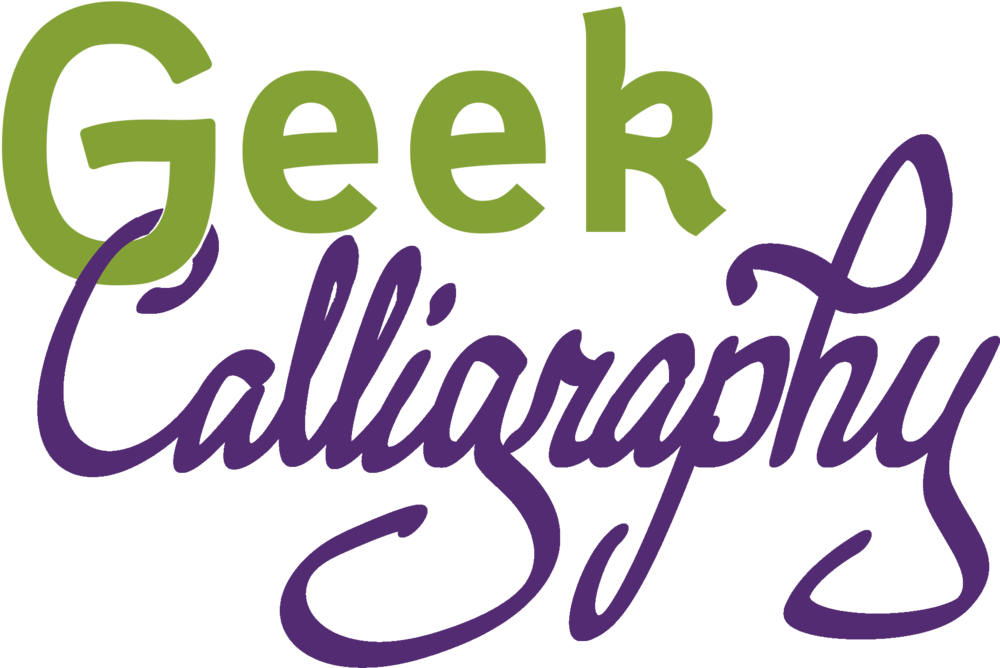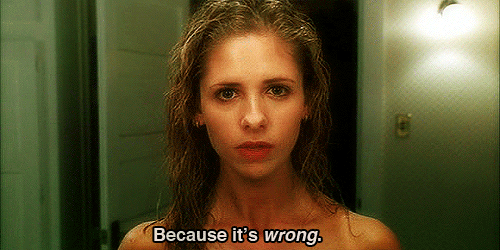By Terri
You’ve probably noticed that when we use someone else’s intellectual property, we make a point of getting official permission from the owner of that IP before we sell prints using it. This is because not only is art theft evil, but all forms of IP theft are evil.
Sarah Michelle Gellar as Faith Lehane telling the audience why you shouldn’t do bad things - Because it’s WRONG!
We are a business. When we make a piece of art based on a book we like, it’s likely that we intend to sell it. It’s wrong to use someone else’s IP to make money without consulting them and making sure they receive proper attribution and monetary recompense. So all of our art based on major works is produced with permission of the IP holders and often we pay a licensing fee for it. All of those pieces began as an email to the author or their agent proposing that we turn their work into art, and how should we compensate them for the use of it. And we have been turned down. In three cases, it was because the books/series we wanted to do art of are in some stage of TV development. This means that the rights to the work are in legal limbo, and permission could not be given to us to use the work. (Another time the author’s staff judged that the author had too much on their plate to contemplate another business proposal; this is what staff are for and we applaud them for doing their job.) This makes us sad, but we respect other people’s intellectual property.
“But what about your Wonder Woman print? Did you get permission for that?” The answer to that is complicated. I did send Warner Bros an email requesting permission to use the logo in an art piece. I never heard back from them. However, since Warner Bros/DC Comics holds the copyright to the logo, no individual creator is being deprived of a piece of the profits. William Moulton Marston (the creator of Wonder Woman) is not being deprived of royalties from our print, nor is Gail Simone (one of the most recent writers of the comic). Moreover, this print is a clear example of transformative work. We have synthesized Proverbs and the Wonder Woman logo in a way that both changes and comments on the original IP.
“That SpaceScape print you did features a quote from Babylon 5. I bet you don’t have permission to use it.” Well, no, we do not have explicit permission to use that quote. We did try and figure out who we should ask, and it turns out that Babylon 5 is something of an orphaned property that no one really wants to acknowledge that they own. We even tweeted at J. Michael Straczynski, but he didn’t respond. The print contains an attribution of the text to Babylon Productions. If someone does come after us, we’ll talk it out then.
“Aha, I found something you don’t even attribute credit to!” If you are referring to either the Police Box Mizrach or the Salute Ketubah, then you are correct, in a way. In both of these cases, we used images that cannot be copyrighted in any way. Though both the British police box and the Priestly Blessing gesture are associated with major media franchises, one is a public utility akin to a mail box or phone booth and the other is a hand gesture that is part of Jewish prayer. Neither of these is subject to copyright. These are also pretty clear fair use cases.
Note - this is not to say there isn’t a place for fan art! We’re firm believers in any fan’s ability to create art based on their favorite fandoms. I’ve seen some AMAZING banner images on various fanfics on AO3 and don’t get me started on some of the stuff I’ve seen on Tumblr. But once you start profiting from the art, there needs to be recompense to the original creator of the IP. Oddly enough, this is one of the reasons I’m working on a proposal to the WSFS Business committee about the art categories. I don’t think what we do is fan art. Even when the art is based from something we didn’t invent in our heads, it’s work produced for sale.

